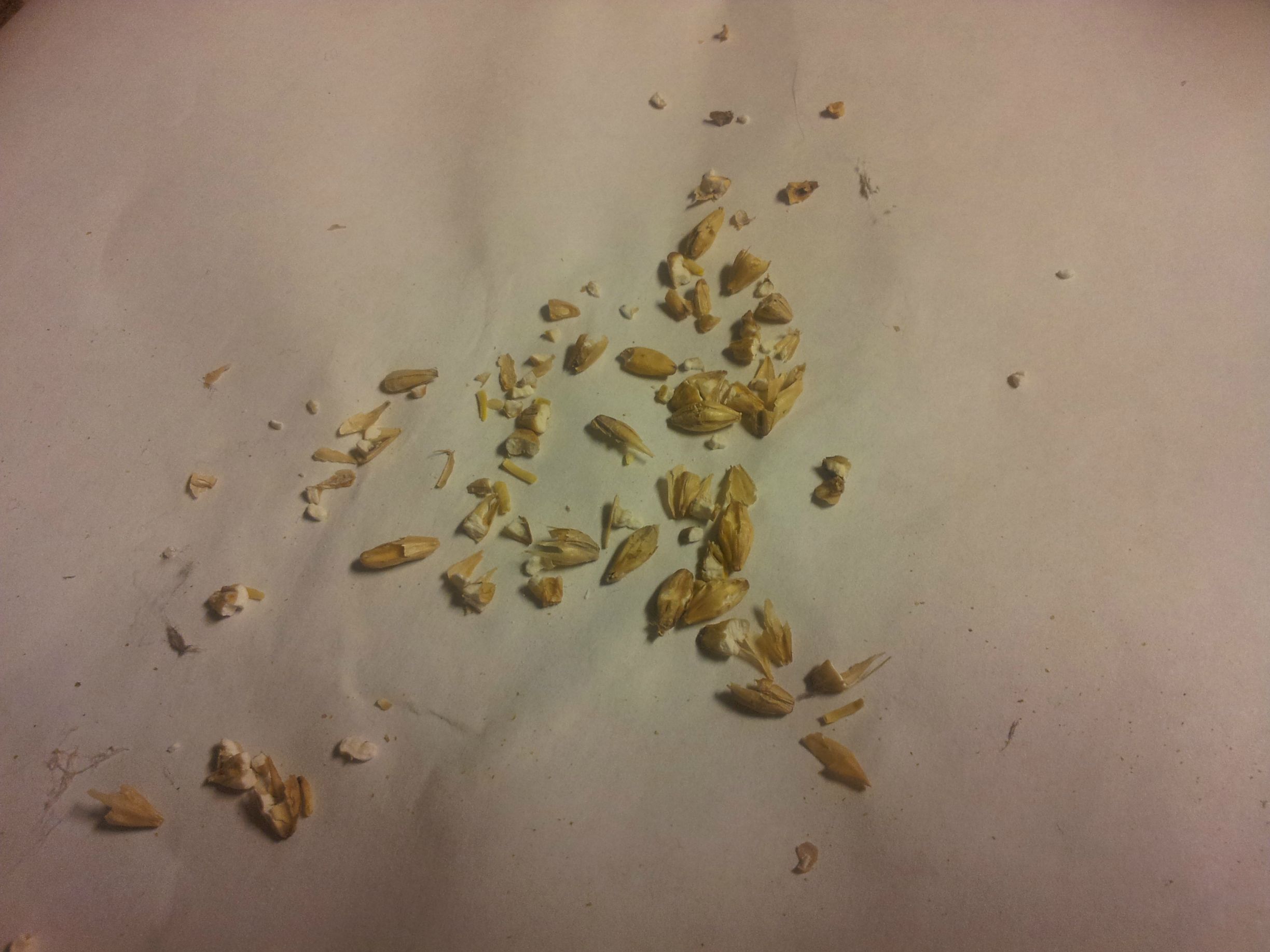joshwoodward
Member
So I've been doing all-grain for awhile now, and I have 7 AG brews under my belt. Every single one of them has been drastically under the target gravity.
Example: last night, it was a brown ale. I mashed 6.25 lb 2 row, and about .4 lb each of 40L caramel, carafoam, and chocolate malt in 3 gallons of water at 150ish, pH=5.1, then batch sparged with another 3 gallons of 170F water (with a good stir and a 10 minute rest). Target pre-boil OG was 1.043 (assuming only a 68% efficiency), target post-boil 1.052. The first run mash gravity was 1.057, but once I added the sparge wort to the first run, it was only 1.030 (which, mathematically, means the sparge water was basically just plain water). I had to add almost a pound of DME to get the gravity up for my puny 3.5-4 gallon batch. That's about 60% efficiency.
Another example: my last hefe. Target pre-boil was 1.046, target post-boil was 1.052. First run gravity was 1.070 (3.3 gal mash water), but after 4.7 gal of sparge water, the gravity was 1.032. That's 56% efficiency.
And that seems to be the pattern with all of the brews, they all come in drastically under. I've checked the temperature, the crush is good I think, I've used all different sorts of water, I have a cooler with a false bottom and don't get stuck sparges.
I should mention, my goal is time savings and predictability, so buying extra grain to make up for my lousy efficiency isn't a big deal, even going no-sparge would be fine. But, I feel like there's something wrong with my process that's causing this to be happening, and I'd love to correct it.
Any ideas?
Example: last night, it was a brown ale. I mashed 6.25 lb 2 row, and about .4 lb each of 40L caramel, carafoam, and chocolate malt in 3 gallons of water at 150ish, pH=5.1, then batch sparged with another 3 gallons of 170F water (with a good stir and a 10 minute rest). Target pre-boil OG was 1.043 (assuming only a 68% efficiency), target post-boil 1.052. The first run mash gravity was 1.057, but once I added the sparge wort to the first run, it was only 1.030 (which, mathematically, means the sparge water was basically just plain water). I had to add almost a pound of DME to get the gravity up for my puny 3.5-4 gallon batch. That's about 60% efficiency.
Another example: my last hefe. Target pre-boil was 1.046, target post-boil was 1.052. First run gravity was 1.070 (3.3 gal mash water), but after 4.7 gal of sparge water, the gravity was 1.032. That's 56% efficiency.
And that seems to be the pattern with all of the brews, they all come in drastically under. I've checked the temperature, the crush is good I think, I've used all different sorts of water, I have a cooler with a false bottom and don't get stuck sparges.
I should mention, my goal is time savings and predictability, so buying extra grain to make up for my lousy efficiency isn't a big deal, even going no-sparge would be fine. But, I feel like there's something wrong with my process that's causing this to be happening, and I'd love to correct it.
Any ideas?



